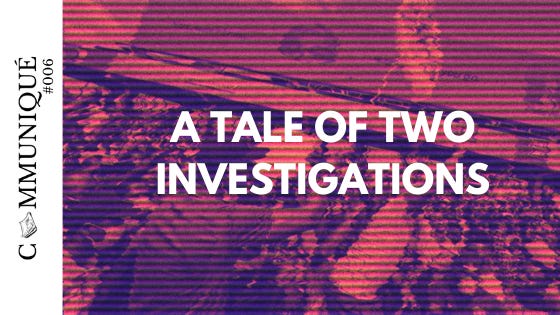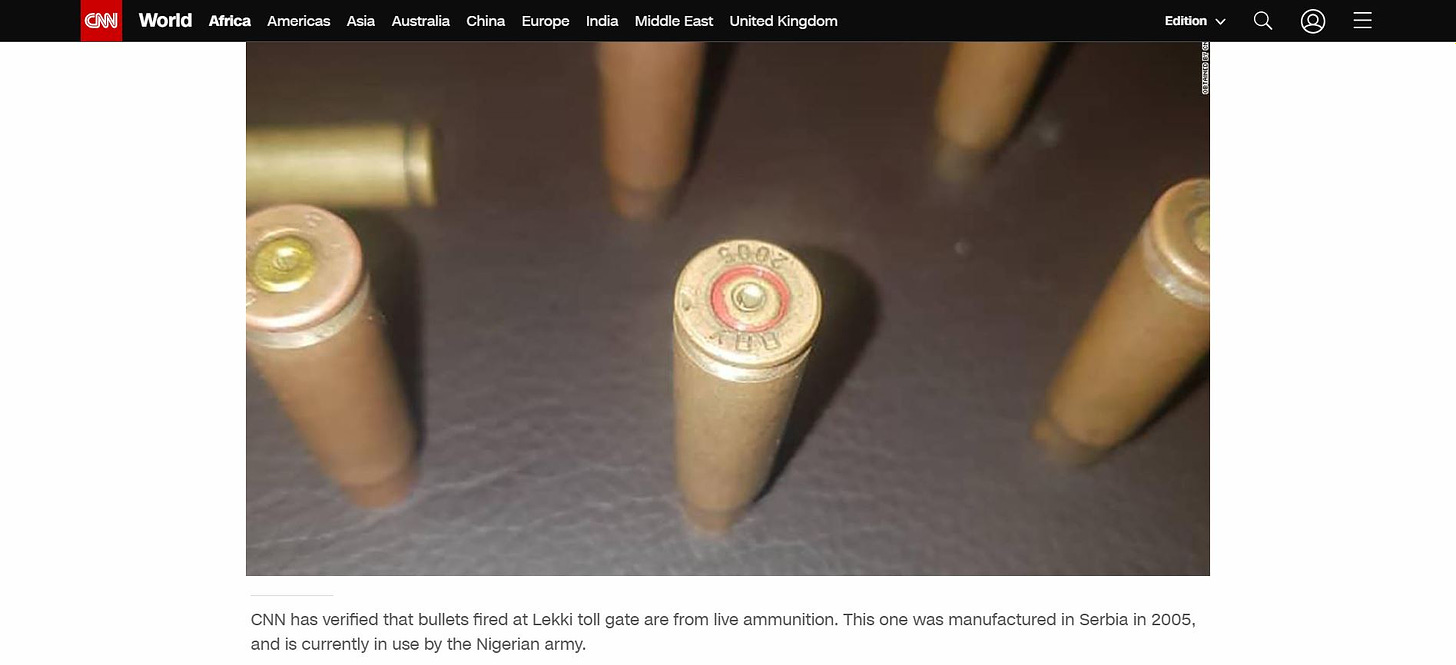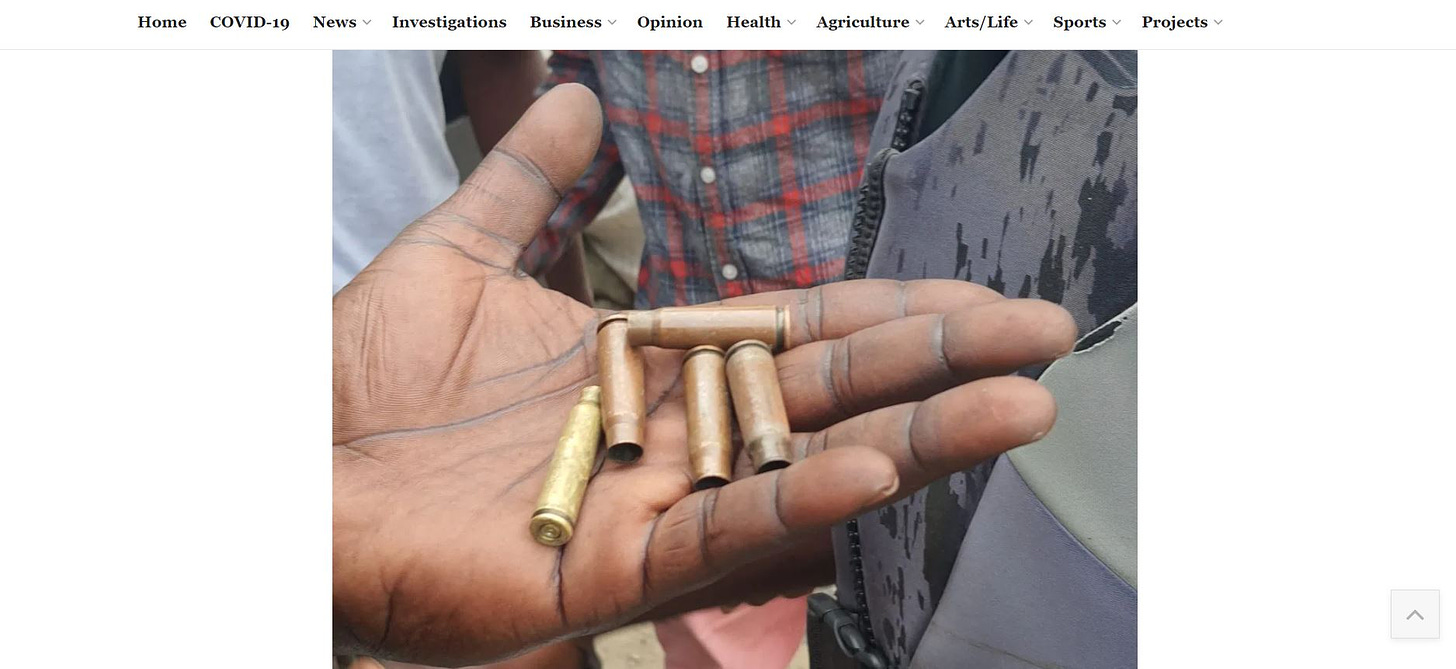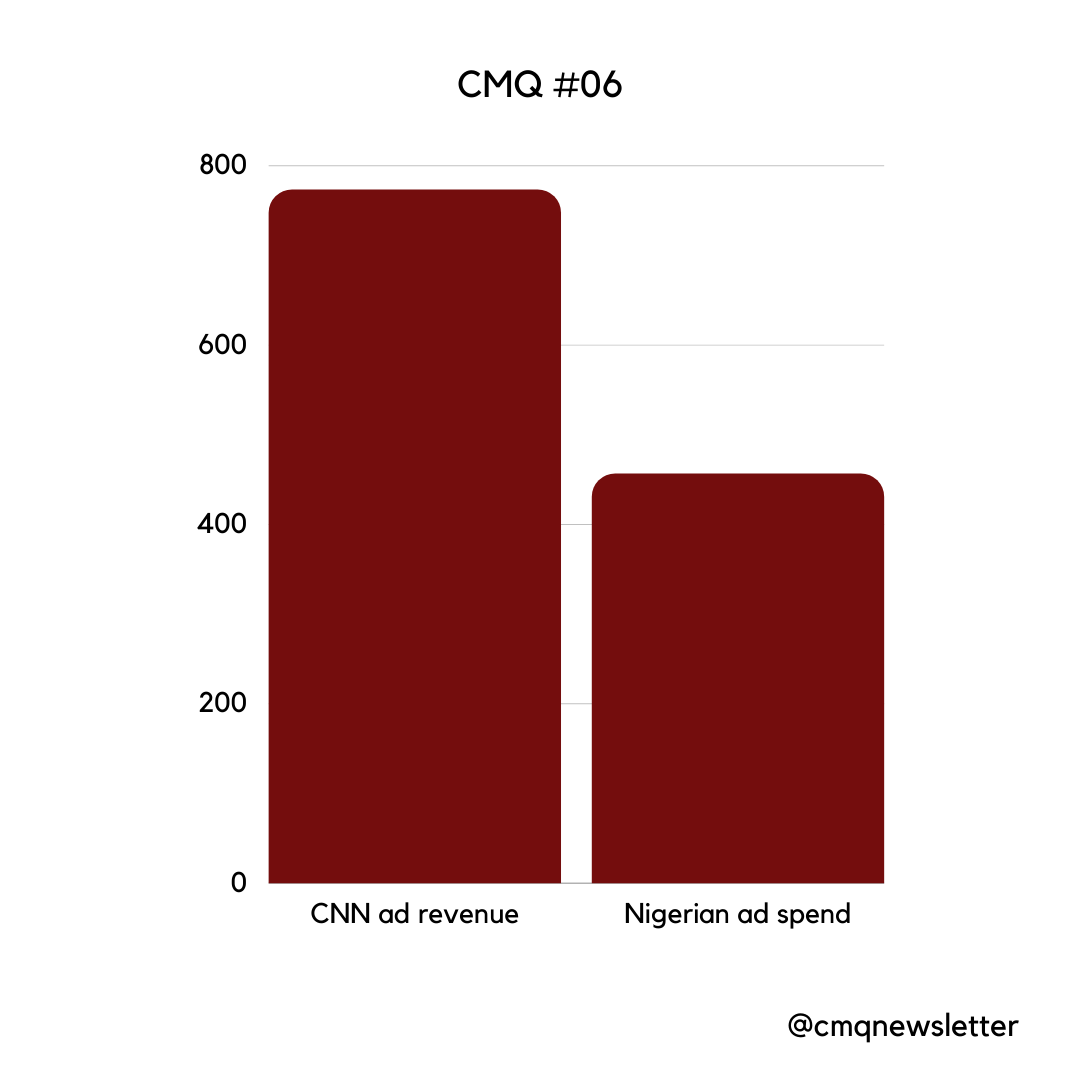Communiqué 06: A tale of two investigations
Both CNN and Premium Times published investigations into the events of October 20, 2020, at Lekki Toll Gate. But what do their reports tell us about the quality of journalism in Nigeria?
This is a monthly newsletter about the media industry in Nigeria, you can subscribe here so you don't miss any edition:
On Tuesday, CNN published an investigative report about the Lekki Toll Gate massacre of October 20, 2020. The report disputes the government and army’s fluctuating accounts of what happened that night. It found "evidence of bullet casings from the scene [matching] those used by the Nigerian army when shooting live rounds", verified video footage that "shows soldiers who appear to be shooting in the direction of protesters", and eyewitness accounts that confirm there were two separate rounds of shooting.
Mixed emotions surround the report. On one hand, there is a feeling of hope that accompanies further validation of what we already know and hope that the events of that night will count for something. On the other hand, there is a creeping feeling of despair that even though the tragic events of that night are now clearer than ever, no one will be held accountable for this and justice for the lives lost might be an illusion.
But amidst all this, there is a line of conversation that caught my attention. While many people praise CNN (and deservedly so) for the work they’ve done, there is a group that does so at the denigration of the local media. One Twitter user said, “CNN has done what no investigative journalism or tv network in Nigeria could do. Watching it now and it’s so graphic. But most importantly, with this, the truth of October 20, 2020, will never be misrepresented.” He eventually clarified his position: “At the same time, I credit @ARISEtv and other few Nigerian media outlets who consistently did a lot to ensure that the story of the #EndSARS was told even within the undemocratic setting we find ourselves.”
His initial sentiment is not uncommon. But there is a type of criticism of the local media that is valid and a type that is just unreasonable. This is the latter.
In the newsletter for October, I write:
“For the first few days of the protest, traditional media were largely silent. If you rely solely on local TV or print publications for news, chances are you were unaware or unsure what the protests were about, particularly if you live outside Lagos... There is anecdotal evidence from parents and older relatives who depend on local media for their news that they did not know a lot about the protests and were unsure what the protesters were agitating for.”
Criticism of the local media’s delayed reaction to the protests and the quality of coverage is fair, but what is unfair is the denigration of the work they have since done. The day after the massacre most newspapers nailed the story on their front pages like Martin Luther nailed his Ninety-five Theses to the door of All Saints' Church in Wittenberg. TV stations covered the shooting and its aftermath round the clock. Radio stations talked about it all day long. Before CNN’s report, Premium Times published an investigation into the events of that night. Nicholas Ibekwe, Head of Investigations at Premium Times, spent days talking to residents of Admiralty Way, Lekki Phase 1, a neighbourhood that is about 2 kilometres from the venue of the massacre.
The report included details of his conversations with the residents, eyewitness accounts, video evidence of a corpse floating on the lagoon near the neighbourhood, and pictures that contradict the accounts of the Nigerian government and the army.
The bullets. Let’s talk about the bullets
That said, one thing stands out from the CNN report, and that is the quality of presentation in comparison with that of Premium Times. Nothing highlights this better than the bullets.
Both CNN and Premium Times got hold of the bullet casings from the massacre. But the former went one step further to obtain export documents that show where the bullets were purchased (Serbia) and to confirm that they were indeed purchased for the Nigerian army. This is crucial information that will swing a case in any impartial court of law. But it is also information that highlights just how far away Nigerian journalism is from the highest level. Two main factors contribute to this.
Why Nigerian journalism is the way it is
1. Inadequate funding
CNN is a well-funded machine with an army of reporters and newsrooms that have vast international experience and connections. Premium Times, for now, can’t compete with that. What’s more? For stories like this, CNN employs the services of an investigator (or investigators) who works alongside the reporters. The average Nigerian reporter does not have that luxury.
Furthermore, CNN is expected to rake in around $773.1 million in advertising revenue in 2020, an increase of 11.7% from the previous year. By contrast, Nigeria’s entire advertising spending was estimated at $456.4 million in 2019. So, CNN generates more from advertising in one year than the whole of Nigeria spends on it. It is also worth noting that more than $130 million of Nigeria’s ad spend goes to out-of-home advertising (OOH), B2B advertising, cinema advertising, and music advertising. And remember, advertising is the lifeblood of the media business. If media houses aren’t making as much as they’d like, it will show in the quality of their work. Furthermore, because local media are likely to be more concerned about surviving within the context of their environment than dominating globally, training and upskilling their journalists are either outsourced to the CSR initiatives of private companies and NGOs or aren’t done at all. What this means is that many of their journalists are stuck with skills akin to stale bread. Or that their skills are moulded by organisations with their own agendas that aren’t in the best position to train journalists for the job.
Beyond this, Nigerian journalists also have to deal with the weak execution of labour laws from both private and public sector employers, and a weak justice system. Many Nigerian journalists do not enjoy basic things like health insurance and legal services. Initiating legal proceedings is arduous, expensive, and unpredictable, so it’s discouraging to take cases to court. The easy way out is for them to stomach what they can get. This type of environment will affect anyone’s quality of work and willingness to go the extra mile.
2. Limited press freedom
In ‘The cost of good journalism’, I write:
“Nigeria is not the most conducive place for journalists. The country has consistently ranked low on the World Press Freedom Index. Right now, it sits at 115th out of 180 countries. In 2019, it ranked 120th and in 2018, it ranked 119th… According to the Committee to Protect Journalists (CPJ), at least 8 Nigerian journalists have been murdered in relation to their work since 1998… Not much has changed over the years… Nigeria is not more accommodating to journalists today than it was some years ago… The Nigerian government is not more transparent today than it was some years ago… It is difficult to do good journalism in Nigeria because the environment is just not designed for that.”
A few days after the massacre, the National Broadcasting Commission (NBC) fined ARISE Television, Africa Independent Television (AIT), and Channels Television N3 million ($7,762.91) each for using “unverified images of alleged shooting” in their reportage on the events of October 20. NBC’s actions have been criticised as an attack on press freedom and followed with a lawsuit from the Media Rights Agenda (MRA).
This is the reality that Nigerian journalists and media entrepreneurs have to face. Investigative journalism and incisive reporting don’t often result in corrective action. Instead, the journalists have to deal with censorship and, sometimes, threats to their lives and profession. In Nigeria, politicians or shady businessmen do not get exposed and then come out to cry and beg for forgiveness, instead they torpedo the journalists and platforms that exposed them. But despite all this, journalists continue to put in the work. That is commendable.
So, when criticising Nigerian journalism, we must do so with an appreciation of context. However, there are things journalists and media entrepreneurs can do better, things that are well within their control.
What can Nigerian journalists do better?
Journalism in Nigeria and running a media business in Nigeria are far from easy, but there are ways to make them less difficult and more effective.
For journalists:
Things like paying more attention to the quality of your presentation, regardless of your medium, understanding that what you’re telling people is just as important as how you’re telling them.
Learn how to enhance the way people experience your work, knowing that style is more attractive than substance initially.
Go a step further to verify the small details; identify time stamps on photos you source from social media before using them (here’s a guide on how to do that).
If your publication cannot afford copy editors, use free editing software to improve the quality of your work.
For media entrepreneurs:
Things like investing in the user experience and user interface of your website go a long way; it costs less to do that today than it did some years ago.
If you need to subscribe to AFP or Getty Images for access to their videos and pictures, do it, you can afford it.
Hire freelance editors and graphic designers if you can’t afford them full-time.
Buy corporate health insurance for your staff, there are relatively affordable options.
Above all, treat your journalists with empathy. They are the engine of your company, you have to protect them.
Some problems have plagued and will continue to plague journalism for years to come: The government’s blatant disregard for freedom of expression, the habitual abuse of power by people with the means to do so, the dwindling economics of the business, weak labour laws, etc.
But despite all these, very rarely do people judge journalists based on their efforts or intentions. They judge by the quality of their results, and this is where Nigerian journalists can do better. If you will go through the rigour of digging up the truth, defying the odds, and damning the consequences, if you will risk your life to tell a story that you know people need to hear, then it is more beneficial (for you and your audience) that you go the whole nine yards.
If you enjoyed reading this, please like the post and tell other people about Communiqué.









So Educative. Rich content. Fair sense of judgement. Kudos.
This article is so apt! It acurately presents the realities of practicing journalism in Nigeria. It's easy to criticize when you don't have a full understanding of the context. I like the fact that you also point out low hanging fruits that Nigerian journalists and media outfits can easily apply to immediately improve the quality of their work.